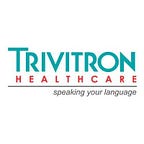Early Detection, Early Intervention: How Neonatal Screening Saves Lives
The miracle of childbirth brings immense joy, but also a natural concern for a newborn’s health. While some conditions are readily apparent, others lurk beneath the surface, potentially causing serious health problems down the line. Thankfully, a powerful tool exists to identify these hidden threats: Neonatal Screening (NBS), also known as Newborn Genetic Screening.
What is Neonatal Screening?
NBS is a series of simple tests performed on newborns shortly after birth, typically within the first 24–48 hours. These tests screen for a panel of potentially life-threatening or debilitating genetic disorders, metabolic conditions, and hormonal imbalances. Often, these conditions present no immediate symptoms, making early detection crucial for preventing irreversible damage.
The Power of Early Intervention
The magic of NBS lies in its ability to detect issues before symptoms arise. Early intervention for identified conditions can significantly improve a child’s long-term health and quality of life. Here’s how:
- Prompt Treatment: Once a condition is identified through NBS, specific treatments can be initiated immediately. This could involve dietary changes, medication, or even specialized therapies. Early intervention can prevent the onset of symptoms or significantly lessen their severity.
- Improved Outcomes: Early treatment can have a dramatic impact on a child’s development. For example, early intervention for congenital hypothyroidism can prevent intellectual disability and ensure normal growth. Similarly, early treatment for phenylketonuria (PKU) can prevent cognitive impairment.
- Reduced Healthcare Burden: By identifying and treating conditions early, NBS can significantly reduce the need for future hospitalizations, surgeries, and other intensive medical interventions. This translates to better health outcomes and lower healthcare costs.
How is Neonatal Screening Performed?
NBS procedures are minimally invasive and painless for the newborn. The most common method involves a heel prick to collect a small blood sample. This sample is then sent to a specialized laboratory for analysis. Depending on the specific screening panel used, additional tests like hearing screening or pulse oximetry might also be performed.
The Scope of Neonatal Screening
The specific conditions screened for in NBS can vary depending on regional guidelines and evolving medical knowledge. However, some commonly screened conditions include:
- Congenital Hypothyroidism: A condition where the thyroid gland doesn’t produce enough hormones, affecting growth and development.
- Phenylketonuria (PKU): A metabolic disorder that can lead to intellectual disability if untreated.
- Cystic Fibrosis: A genetic disorder affecting the lungs and digestive system.
- Sickle Cell Disease: A genetic condition affecting red blood cells, leading to pain and other complications.
- Congenital Adrenal Hyperplasia (CAH): A hormonal imbalance affecting the adrenal glands.
- G6PD Deficiency: A genetic condition causing red blood cell breakdown under certain circumstances.
The Importance of Universal NBS
While some conditions may be more prevalent in specific populations, every newborn deserves the chance for early detection. Universal NBS, where all newborns are screened, ensures that no child falls through the cracks. This is particularly important in regions with limited access to specialized healthcare.
Neonatal Screening: A Lifesaving Innovation
NBS is a testament to the power of preventive healthcare. By identifying hidden threats early, it empowers healthcare professionals to intervene before these conditions have a chance to cause significant harm. This translates to healthier lives, brighter futures, and a reduced burden on healthcare systems.
Trivitron: A Leader in Newborn Screening Technology
As mentioned in previous blog posts, Trivitron plays a vital role in advancing newborn screening practices. Trivitron’s Labsystems Diagnostics OY division is a world leader in newborn screening technology, offering a wide range of instruments and reagents. Their innovative solutions ensure accurate and efficient NBS, allowing for early detection and improved lives for countless newborns.
Conclusion
Neonatal Screening is a powerful tool that saves lives and enhances the well-being of countless newborns. By promoting universal NBS and utilizing advanced technologies like those offered by Trivitron, we can ensure a healthier future for generations to come. Early detection, early intervention — this is the key to unlocking a world where every child has the chance to thrive.
